You are here : Site en angais > DOCTORAL SCHOOL MATERIALS
-
Partager cette page
Doctoral school materials
Presentation
Based on the activities of 6 research units, all recognised by the CNRS, the Materials ED offers a particularly rich and favourable framework for research. This research covers development, characterisation, study and modelling.
It also benefits from the scientific resources and networks of the Ecole Centrale de Lyon (supporting institution) and those of the two other supervising institutions, the Université Claude Bernard Lyon 1 and the INSA de Lyon, which enables it to provide doctoral supervision under the best possible conditions.
The vitality of the Lyon Materials Doctoral School is based on solid foundations both in terms of university training and the industrial fabric (the region brings together nearly 20% of the national materials community).
The missions
To do this, the Materials ED ensures that it :
- Implementing a PhD student admission policy based on explicit, public and selective criteria,
- Ensure the quality of the supervision of doctoral students by the research units and teams,
- To ensure the proper implementation and respect of the Thesis Charter. It ensures that doctoral students are able to prepare and defend their thesis in the best conditions,
- To organise scientific and intellectual exchanges between doctoral students,
- To offer doctoral students training courses useful to their research and professional projects, as well as the training necessary to acquire a broader scientific culture,
- Organise follow-up and provide support for the professional integration of doctoral students,
- To provide a European and international opening, in connection with foreign higher education institutions and research centres.
Organisation of the ED
04 72 18 62 51
yann.de-ordenana@ec-lyon.fr
ED Office
- BENAYOUN Stéphane
- MEILLE Sylvain
- BEYOU Emmanuel
- AGOURRAM Ayoub
- BONNARD Gabriel gabriel.bonnard@insa-lyon.fr
- CODEVELLE Juliette juliette.codevelle@univ-lyon1.fr
- FOREST Hugo hugo.forest@insa-lyon.fr
- GOTTI Quentin quentin.gotti@etu.univ-lyon1.fr
- GUICHARD Thibaut thibaut.guichard2@etu.univ-lyon1.fr
- PIEDNOIR Rachel rachel.piednoir@univ-lyon1.fr
- SUDOUR Erwan erwan.sudour@etu.univ-lyon1.fr
- ZUBIETA LABORDE Paul-Marie paul-marie.zubieta-laborde@ec-lyon.fr
Composition :
| EDML Office | |
| Director of EDML | BENAYOUN Stéphane |
| Deputy Director of EDML | BEYOU Emmanuel |
| Deputy Director of EDML | MEILLE Sylvain |
| Director of the UMR affiliated to the EDML or his/her representative | |
| MATEIS | NORMAND Bernard |
| IMP | RUMEAU Jannick |
| LTDS | LOUBET Jean-Luc |
| INL | MASENELLI Bruno |
| ILM | VANEL Loïc |
| LMI | FERRO Gabriel |
| Representatives of the management of the parent institutions | |
| ECL | DE BARROS-BOUCHET Maria-Isabel |
| INSA | LALLART Mickaël |
| UCBL | DANIELE Stéphane |
| ITA-BIATSS representatives | |
| Representative 1 | GRATON Olivier |
| Representative 2 | DE ORDEÑANA Yann |
| Representatives of the socio-economic world | |
| Safran | SENANI Sophie |
| JED Innovation | DOUCE Jérôme |
| Anthogyr | COURTOIS Nicolas |
| Nexans | SAHYOUN Jihane |
| Doctoral student representatives | |
| Member of the doctoral students' office 1 | |
| Member of the doctoral students' office 2 | |
| Member of the doctoral students' office 3 | |
| Member of the doctoral students' office 4 | |
The ED in figures
The results presented below, which provide a more precise profile of the doctoral students and their location in the various laboratories of the ED, are the result of a survey conducted during the first quarter of 2022 among all the doctoral students of the ED
1) Academic background of recruited PhD students
EDML doctoral students' baccalaureate grades
Training profile of EDML doctoral students
2) Internationalisation of recruitment
Nationality of EDML doctoral students
| Africa | North America | South America | Asia | CEE |
| Ivory Coast | United States | Brazil | South Korea | Italy |
| Tunisia | Canada | Iran | Belgium | |
| Morocco | Lebanon | Germany | ||
| Senegal | China | Greece | ||
| Egypt | Philippines |
Nationality of foreign PhD students of the EDML
3) International experiences
Distribution by partner country of the EDML's co-supervised theses. They represent 10.1 % of all the ED's theses
| Partner institutions of the EDML's cotutelle theses |
| Deakin University (Australie) |
| Royal Melbourne Institute of Technology (RMIT) |
| Tohoku University |
| University of Sherbrooke |
| UFSC (Federal University of Santa Catarina) |
| Politecnico de Torino |
| University of Seville |
| ETS Montréal |
| University of Carthage |
| Tunis el manar Tunisia |
72% of French EDML doctoral students have more than 3 months of academic experience abroad (and 26% > 6 months)
Level of certification in English for all EDML doctoral students. From 2022 onwards, a minimum level of B2 will be required for enrolment in the EDML. 81% of foreign doctoral students have a level of French higher than or equal to the A2 certificate of French
4) Origin of thesis funding
100% of theses are funded for 36 months. Distribution of thesis funding types for EDML doctoral students.
5) Distribution of doctoral students by laboratory and by institution
6) Distribution of the supervision rate of EDML PhD students by HDRs
The actors of the ED
Key figures
- Between 200 and 230 PhD students
- More than 100 HDRs
- Between 50 and 60 theses defended each year
- 6 CNRS UMR laboratories













